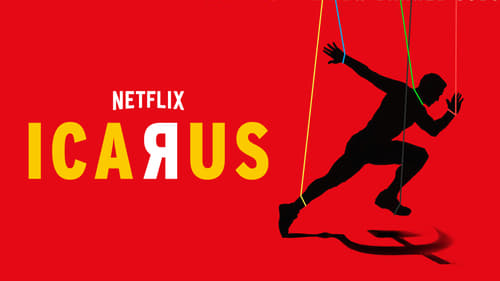thomasjay-52277
A fast paced and action packed delve into the world of sports doping, despite its seemingly rambled sorting of narrative beginning with a mixed focus on the director and Lance Armstrong's scandal we suddenly move from what could be a practical investigation into the underhand dealings of sports corruption unravelling an international conspiracy centred around the Russian anti doping scheme, despite not having a "Hollywood" end the story that develops is an intriguing one
blenonb
The film is brilliant, i was on the EDGE OF MY SEAT! The producer also was in the right place and the right time to uncover something bigger. Some people would probably shut down production but this guy is so brave to continue.
This is not a propaganda, athletes were banned, people got fired and someone end up in the witness protection program. These are all in the news. This happened.
Propaganda's are based on lies. This happened in real life, there are facts. Don't believe the russian bots review. Watch it and judge for yourself.
jodyfranz
I was thinking this would be about one guy's journey through the cycling world and uncovering some of the doping behind the whole Lance Armstrong thing. This goes way beyond that and turns into almost a live thriller. All that was missing was car chase scenes.One of the better documentaries I have seen in a long time.
paul2001sw-1
Film-maker and amateur cyclist Bryan Fogel had a not-very-interesting idea for a movie. He would show how doping could improve a cyclist's performance - and how anti-doping labs were hopeless at catching the cheats - by using himself as a subject. The first part of 'Icarus' isn't so good, to be honest - Fogel is neither particularly charming nor informative as a character is his own film, and the narrative is spoiled when, in spite of taking all the drugs, he doesn't manage to bring home the bacon when racing. But for the second part of his mission, he had sought the help of the retired head of the U.S. anti-doping laboratories, who had some ideas about how athletes has dodged his testing regimen. When he got cold feet about being involved in the film, he suggested an alternative collaborator: Grigory Rodchenkov, the current head of the offical Russian laboratory.From the start, Rodchenkov seems to have a strange attitude to the project. You might thing he would be reluctant to show how his day-job is useless; instead, he approaches the project with a strange mixture of enthusiasm and business-as-usual. And then, as the film was being made, a scandal broke over his head. It turned out that, as well as running the lab, he was routinely helping Russian athletes to cheat his own test. The documentary project, as it happened, perfectly mirrored his normal working life. Quite why he was willing to participate, and draw attention to himself, is unclear; perhaps he just considered himself invulnerable. After all, he was usuallly not freelancing, but working at the direction of senior figures in the Russian state. Which made the scandal uniquely dangerous for him.The ending: Rodchenkov flees to the United States. He aids the authorities, but is separated from his family, and has perhaps good reason to fear for his own life. Russia gets banned from the Olympics, but the decision is at least partially rescinded; power and money trump justice. The film has a decided anti-Russian slant, and with good reason, but my fear is that the athletes from most other countries are little better (after all, Fogel was orginally inspired by the Lance Armstrong story), even if there's less in the way of official backing. In the end, the bizarre and flamboyant character of Rodchenkov makes the film, and a more interesting film surely than the one Fogel was expecting to make. But you couldn't call it a happy story.

